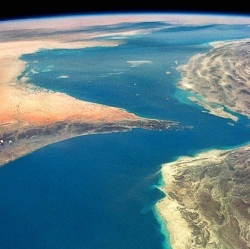
The Biomass mission’s novel space radar will make 3D maps of forests, improving our understanding of how carbon is cycled through the Earth system. Its data will be important for climate research, and will create a baseline for treaties that seek to monitor the status of global forest resources.
The spacecraft is to be assembled by the UK arm of Airbus Defence and Space. It signed a contract with the European Space Agency (Esa) on Friday last week valued at €229m (£179m). The mission, which will launch on a Vega rocket in 2021, is part of Esa’s Earth Explorer programme.
This operates a fleet of satellites that deploy innovative sensor technology to address big, outstanding environmental questions. The newness in Biomass is its P-band radar: a type of instrument that only recently has begun to be exploited in orbit.
By pulsing with a wavelength of 70cm, the radar can look through the leaf canopy of forests to the woody parts below. Using an approach akin to tomography, it will scan slices through the trees on repeat passes to build up a picture of how much woody material is present.
Global maps should be produced every six months. The plan is for Biomass to gather at least five years’ worth of data.
"Effectively, we’ll be weighing the forests," said Prof Shaun Quegan, who was one of the key proposers of the mission.
"We’ll know their weight and their height at a scale of 200m, and we’ll see how they are changing over time.
"This will give us unprecedented information on deforestation – on how much carbon is going into the atmosphere from this source. At the same time, we’ll also see how much carbon is being taken up in regrowth," the Sheffield University scientist told BBC News.
